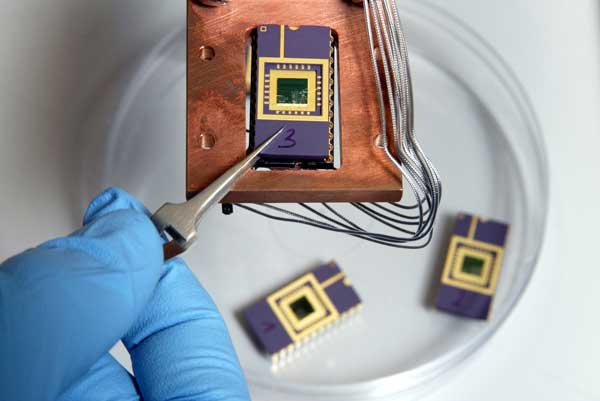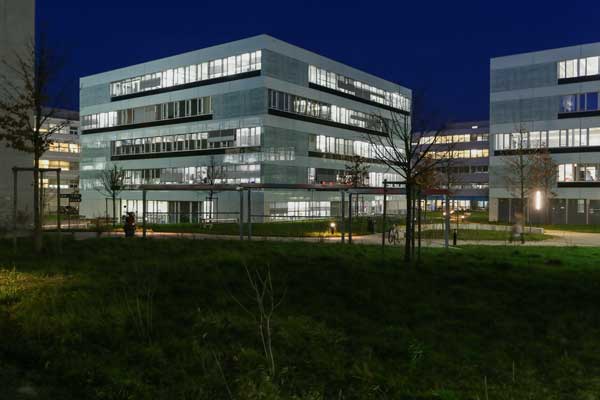Features
Adrienne Corboud Fumagalli
24 April 2015
Vice President Innovation and Technology Transfer at EPFL in Lausanne shares her experience with 4iP. (Photo: Michael Stahl)
Adrienne Corboud Fumagalli is a Dr. of economics and social sciences and Vice President Innovation and Technology Transfer at EPFL in Lausanne (Swiss Institute of Technology). She focuses on the development of the EPFL Innovation Park renowned for its involvement in the creation of hundreds of start-ups. Adrienne also chairs foundations supporting start-ups.
Adrienne’s background is in the telecoms and media technology industry sectors where she held executive level roles in business development, mergers and acquisitions.
She began her career as a researcher, lecturer and consultant in the field of media and information technology policies with various institutes (University of Fribourg, DAMS Bologna, CNRS Paris and McGill University, Montreal, Loughborough University).
Here, Adrienne shares her experience of innovation with 4iP.
Technology invention at EPFL (Photo: Alain Herzog)
How do you select start-ups for incubation - what are the ‘must haves’ to be incubated at EPFL?
The key features of a promising start-up are:
- The product / market fit: is there a problem and is the solution provided adequate?
- Is the solution unique enough?
- Is the team dedicated and capable of launching the project?
How important are patents to start-ups and why?
From the perspective of these “must haves”, (market dynamics, product uniqueness and strength of team), it is clear that a strong IP including patent applications is an indication of the uniqueness of the solution proposed. It is a tool, a means and not an end. Therefore, it is important but not necessarily critical. Fast and great execution is the critical element. Additionally, for science-based ventures, IP is more relevant than in “traditional” businesses particularly because potential investors will be sensitive to the protection of the invention.
How do path changing technology inventions come about? Is there a typical pattern or a set of required components in your view?
Ideas and inventions are clearly important but sometimes inventors have a tendency in over-estimating their importance. The transformation into a viable product or service will be just as challenging and critical. Silicon Valley entrepreneur and investor Peter Thiel claims you need to answer seven questions for a solid project:
- Do you have a breakthrough technology?
- Is your timing right?
- Do you have something no-one else has?
- Do you have the right people?
- Can you sell and market your stuff?
- Will you be still around in 10 years?
- Do you know something nobody else does?
This is a good illustration of the key components required and it shows it goes much further than the initial invention.
Has the process of technology invention become more challenging over the years? If so, why?
With the exception of biotechnology where a product often means one molecule which can be “easily” protected because it has as its source one invention, the process of technology invention has become very complex as a product is often times a combination of many components coming from many fields of technology or science. You, therefore, need many inventors for one product, and ideally from trans-disciplinary fields. It additionally makes the protection of a product far more challenging as literally thousands of patents maybe linked to that specific product.
EPFL Innovation Park, Lausanne, Switzerland (Photo: Alain Herzog)
How easy is it for start-ups to find funding for R&D and the exploitation of R&D work?
Great start-ups always find capital to fund their initial phases if the entrepreneurs are ambitious and dedicated enough. Indeed, venture capital is over abundant, not necessarily in Switzerland or continental Europe, but certainly in the USA, UK or Asia. If R&D is clearly shown as a business unit, start-ups can find funding. There is, however, a risk-averse attitude at the early stage where the technology risks remain very high. When a start-up has a high science or technology component, funding may be more difficult. But again, credible inventors always find funding.
Do you think the inventions that start-ups at EPFL have been involved in could have come to commercial fruition without intellectual property?
There are fields where IP is critically needed such as in biotechnology. In the medical field, Aleva or Anokion would not have been funded without strong IP. There are other fields where it is less critical but important. It would be doubtful that companies such as Lemoptix, Composyt or Aimago, which have been recently acquired, would have been without strong IP. But Jilion, which was acquired by Dailymotion for its software products, may have had less IP. So it is field dependent.
What role does intellectual property have in the cycle of innovation and should a particular system be encouraged?
This is a complex question. It is quite clear that without IP a start-up is less protected and may attract less capital. But it is not clear that companies such as Intel, Apple or Google were dependent on strong IP. IP is probably a necessary ingredient in the innovation process, but again market adoption is not always linked to strong IP. It is not clear what would have happened to the Internet or the microprocessor if they had been patented. There may have been too much emphasis given to IP and many firms have specialized in building strong IP portfolios that they then licensed to established companies. This over-emphasis has created perverse effects such as pure-play IP companies or trolls. A balanced system should be encouraged and reforms have been tried in that direction in the USA, but the challenges remain high for an ideal system.
In your experience, is the process of technology invention well understood?
Technology invention is better and better understood but there is still a lot of misunderstanding. The fact of using the term “process” contributes to that misunderstanding. Inventing and then innovating is more an uncertain adventure where failure rate is high than a process that can be controlled or standardized. Innovation is an unlikely alignment of planets that requires a lot of creativity, discipline and execution skills, not an easy activity.
Switzerland has a strong reputation on global innovation, what lessons could others learn from the country?
Switzerland has been strong with incremental innovation - the improvement of existing products - as is illustrated by the rich and dense Swiss ecosystem of small and medium size enterprises (SMEs). The watch or machine tool industries are good examples. As German economist Hermann Simon [1] has shown, and similarly to Germany, Switzerland has many (sometimes not very well known) innovative family businesses, which are world leaders in their niches and constantly improve their offerings. He calls them “hidden champions” as they are neither large multinationals neither sexy start-ups, but more traditional businesses with very decent revenues (up to €5 billion). These are interesting models for other countries,
What more could be done in Switzerland and Europe to encourage technology invention?
If Switzerland is strong with innovative hidden champions, it may be less strong with fast growing start-ups, which are more on the disruptive side of innovation. A little less focus on tradition might be a good way to encourage (risky) technology invention through start-up creation.
How important is this issue of intellectual property protection today from an economic and social standpoint?
IP has become (maybe unfortunately) a very important issue. Trolls, companies exclusively based on IP may have made us lose focus on the importance of the end product or service. Again IP is only a tool, not an objective in itself. The recent attempts about IP reform show how complex the issue is.
What advice would you offer a European inventor today?
Be passionate, ambitious, dedicated, focused and never forget that inventing is only the first step. Execution while building and selling a product, i.e. innovation is at least as critical.
What advice would you offer a European policy-maker today on the topic of innovation growth?
Encourage inventors to be more passionate, ambitious, dedicated, focused and provide the adequate framework conditions to make this possible (education, openness, access to capital).





